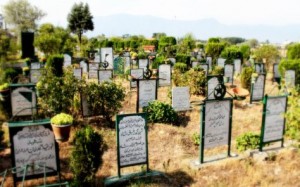Peace Watch » Editor's Take, Kashmir-Talk » Kashmir Diaspora and New UN Secretary General
Kashmir Diaspora and New UN Secretary General
Punchline
New UN Chief And Kashmir
By
Z. G. Muhammad
 For its clarity, history, and facts, the story of the Kashmir Dispute is the best copy that an objective journalist can ever write. For it being well knit any interpolation made in it can easily be made out by an ordinary student of politics. From whatever source material you look at the story, it travels into the mind without any ambiguities. To discerning eyes and analytical minds even the conjured narratives, dominant and hegemonic discourses fail to cloud the truth. Look, at the problem from the White Paper published by the Government of India, in 1948, “with an effort to present its point of view on the Kashmir Dispute.” The document contains numerous reference to the holding of a free and impartial plebiscite in Kashmir.” And subtly admits people’s right to decide their future. Fillip through the pages of the Selected Works of Jawaharlal Nehru, Nehru-Patel correspondence, India’s Foreign Policy by Jawaharlal Nehru. Browse through the plethora of papers and correspondence in British Library, London Library, the United Nations Library, the Royal Geographical Society and archives in the sub-continents; the Kashmir story defeats all the conjured narratives.
For its clarity, history, and facts, the story of the Kashmir Dispute is the best copy that an objective journalist can ever write. For it being well knit any interpolation made in it can easily be made out by an ordinary student of politics. From whatever source material you look at the story, it travels into the mind without any ambiguities. To discerning eyes and analytical minds even the conjured narratives, dominant and hegemonic discourses fail to cloud the truth. Look, at the problem from the White Paper published by the Government of India, in 1948, “with an effort to present its point of view on the Kashmir Dispute.” The document contains numerous reference to the holding of a free and impartial plebiscite in Kashmir.” And subtly admits people’s right to decide their future. Fillip through the pages of the Selected Works of Jawaharlal Nehru, Nehru-Patel correspondence, India’s Foreign Policy by Jawaharlal Nehru. Browse through the plethora of papers and correspondence in British Library, London Library, the United Nations Library, the Royal Geographical Society and archives in the sub-continents; the Kashmir story defeats all the conjured narratives. 
It has been for the inherent strength in the history of the problem that it did not fade away into obscurity at the international level. It survived as an international Dispute during and after the cold war; it did not melt away in the post-9/11 terrorism discourse, and it did not succumb to the free market economy and ‘capturing largest middle class’ discourse. For almost fourteen years the United Nations has not passed any Kashmir related resolution is a historical reality but, it would be naïve to say that it was off its radar. From the times of Trygve Lie to Ban Ki-moon, there has been hardly any Secretary General, who has not viewed perpetuation of the Kashmir Dispute threat to the global peace. Moreover, have called upon New Delhi and Islamabad for peaceful resolution of the Dispute. The Washington that ‘sets much of global agenda,’ has been central to the Dispute from the day it sponsored a resolution on Kashmir. From Dwight D Eisenhower to George W Bush every US President has been looking forward to the resolution of the problem. In the 1990s, we saw Bill Clinton government proactively seeking resolution of the Kashmir Dispute in line with the UN resolutions. Remembering his visit to India and the grand reception accorded by Indian parliamentarians in his autobiography he writes, “I spoke of my respect for Indian democracy… frankly discussed our difference over nuclear issues and urged them to reach a peaceful solution to Kashmir problem.” Though Washington has not been saying it explicitly, it is beyond doubt that it sees Kashmir Dispute as a nuclear flashpoint in South Asia. This concern has been lurking in the minds of American leaders can well understood from what a former Secretary of State Albright wrote in her book ‘The Mighty and The Almighty’ published in 2006. She wrote, “Indian sub-continent was split on the basis of religion. Kashmir was caught between the two; it had a Muslim majority, but a large Hindu minority and a Hindu ruler. The job for diplomats was to find a solution that would leave all sides satisfied. That was almost sixty years ago; now my father (Josef Korbel) is dead, and I am old, both countries have nuclear weapons, and the problem is little nearer to being solved.” Despite, US-Pakistan relations during Obama Administration having been at a low point and the two countries suffering disagreements on some issues, Washington continued to see Kashmir as a gateway to peace in Afghanistan and the region. 
True, US Presidents and UN Secretary General time and again called upon India and Pakistan to settle Kashmir Dispute. However, there can be no denying that neither United Nations nor the United States got proactively involved in the resolution of the oldest Dispute on the UN agenda. It would not be fair to put all blame for non-resolution of the Dispute on the sponsors of the Kashmir resolution and the body that passed these resolutions- guaranteeing the right to self-determination to people of the state. I see three reasons for the perpetuation of the Kashmir problem and United Nations failing to play a pro-active role in executing resolutions it adopted in 1948, 1949 and 1957. One, New Delhi continuing to be captive of Nehru’s Kashmir policy of procrastination and persistent denial mode after 1958. Two, Islamabad failing to have a consistent Kashmir policy. Forgetting, ‘Kashmir problem is primarily the issue of self-determination- a principle that is the basis of the United Nation’s Charter has been willingly walking into the trap of alternative solutions. From Trieste model to the worst of all the 4- point formula- this formula but for divine intervention would have slaughtered the rights of the people of the state. Third, people of the state failing to reach out directly to the international community. In the post-1990 scenario, a section of Kashmir Diaspora endeavored to plead their cause, but it could not emerge as a powerful independent voice for influencing the media and the public opinion in the West and other parts of the world. And directly reach out to the UNSC and the White House. It failed to institutionalize the cause of people of the state by creating institutions like Institute of Palestine Studies.
In the changed global scenario, with Donald Trump in the White House and United Nations having Antonio Guterres as a new General Secretary there are indicators for forward movement on the Kashmir problem. Donald Trump, more than once, said that he was ready to mediate on Kashmir. Antonio Guterres took over on January 1. On Friday, it became clear that he does not “lack interest” in resolving the Kashmir problem. It is appreciable that he intends to talk to India and Pakistan leaders about Kashmir. But, he needs to go beyond the rhetoric of Banki Moon that “his good offices are available to India and Pakistan only if “accepted by both sides,” and see organization living up to its commitment to people of the state.
Published in Greater Kashmir on 16-1-17
Filed under: Editor's Take, Kashmir-Talk · Tags: Donal Trump Kashmir, Z. G. Muahmmad







